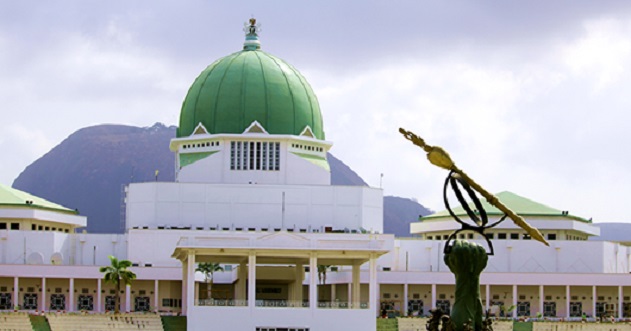Nass Republic
NASS REPUBLIC: Tackling ritual killings. Two other stories, and a quote to remember

On February 9, the House of Representatives called on the Inspector-General of Police, Usman Alkali Baba, to embark on thorough investigations into the rising cases of ritual killings in the country.
We tracked two other stories from the National Assembly (NASS) for your reading pleasure.
Tackling ritual killings
The call made by lawmakers was sequel to the adoption of a motion of urgent public importance by the Deputy Minority Leader, Hon. Toby Okechukwu, during plenary.
Narrating several cases of ritual killings in different parts of the country, Okechukwu, noted that: “On January 22, three teenage suspects and a 21-year-old reportedly killed one Sofiat Kehinde and severed her head and burnt in a local pot in Aboekuta, Ogun State. The Police command in Ogun on February 7, reported that one of the suspects confessed that he learnt the act of ritual killings from a video he watched on Facebook.”
The incessant tales of ritual killings is arguably a manifestation of the erosion of moral values in the Nigerian society. It presents another perspective to the choking level of insecurity, and regrettable effect of high rate of unemployment and mass poverty currently ravaging the country’s youths.
Beyond calling on Baba to up his game in the area of investigation and prosecution of suspects, the Federal lawmakers must appreciate the place of total system review in the journey to reclaiming the Nigerian society.
Without wholesome measures designed and targeted at fighting off the societal ills necessitating unconscionable killings, the descent into perdition will persist, and the lawmakers’ calls will amount to mere political grandstanding which is ultimately needless at this time.
NASS MEMORY LANE
Who said;
“We are embarrassed that the Federal Government has, since the last strike was called off in December, 2020, continued to pass the buck, make excuses and engage in diversions, and distractions rather than meet the terms of agreement it signed with the union. The Federal Government has not been quite forthcoming, neither has it attached any consistent seriousness to the urgent need to reposition, and refocus the education sector in line with our development objectives.”
Answer: See end of post
Two other stories
Okorocha’s appeal
The former Governor of Imo State, Senator Rochas Okorocha, on February 9, appealed to President Muhammadu Buhari, and the ruling All Progressives Congress (APC) to call Governor Hope Uzodinma to order over an alleged consistent harassment and attacks on him and his family members.
This was contained in a statement issued by his Special Adviser on Media, Sam Onwuemeodo in Owerri, the Imo State capital. “The time has come for President Buhari and the leadership of APC to look into what Gov. Uzodinma and his heartless government have been doing in Imo. Gov. Uzodinma, since he came on board under a very disturbing scenario, is either demolishing Okorocha’s projects or renaming them, just to remove any trace to Okorocha,” the statement read in part.
The Okorocha-Uzodinma feud remains essentially what it is… an ego war between two highly discredited politicians whose antecedents continue to rub off negatively on the quality of governance in the state.
The recent show of camaraderie where they were caught hugging each other is but for the optics. Anyone familiar with the conduct of both men knows that they are daggers-drawn, and ready to unleash political crisis in the state in pursuit of their personal and clannish interests.
Just like Okorocha, Uzodinma has been a frequent visitor to Buhari but it is doubtful if the presidency would want to be dragged into such mundane wars.
Raising bar of qualification for leaders
On February 8, the Hon. Adewunmi Onanuga-sponsored Constitution amendment bill to raise the minimum academic qualification for election as a President, Governor, Federal, or State legislator, to at least a “university degree level or its equivalent,” passed second reading.
Speaking during the plenary, Onanuga said: “This is not a bill targeted at stifling the interest of Nigerians in politics, rather it is a bill that will help Nigerians to sufficiently prepare for the humongous task of political leadership.”
Onanuga’s bill deserves all the support, and cooperation it could get to become law. It is no-brainer to assert that based on what obtains in the world of today, Nigeria does not need leaders who are not well-armed with requisite academic knowledge.
Will political heavyweights whose wings would be clipped if the bill sails through allow it to see the light of the day? Only time has the answer.
Answer: Professor Julius Ihonvbere
Ihonvbere made the statement during plenary at the National Assembly, on November 16, 2021. He represents Owan Federal Constituency of Edo State.
Join the conversation
Support Ripples Nigeria, hold up solutions journalism
Balanced, fearless journalism driven by data comes at huge financial costs.
As a media platform, we hold leadership accountable and will not trade the right to press freedom and free speech for a piece of cake.
If you like what we do, and are ready to uphold solutions journalism, kindly donate to the Ripples Nigeria cause.
Your support would help to ensure that citizens and institutions continue to have free access to credible and reliable information for societal development.

























